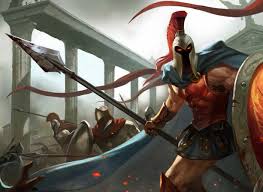Perhaps gamification lends itself most obviously to marketing campaigns and loyalty programs, but its scope is really limitless. The FX world relies heavily on education to recruit, induct and transform new customers into active traders. It would be fairly easy to see how you might introduce engaging challenges, points, badges, levels, boss fights, leaderboards and rewards to Forex training courses.
Trainees could perhaps choose from a variety of different gamified courses based on their existing level of knowledge and skill of day trading. Each course could be constructed as a completely different game experience. Alternatively, the whole training environment might become a massive multiplayer online role-playing game (MMORPG) like World of Warcraft.
Casual Trading Games - Flick a Trade
Currently there appear to be few casual trading games that use genuine game design as opposed to Trading Platform demos. Flick a Trade is a gesture-based mobile trading game for Apple iOS and Android. The game simplifies trading on commodities, indices and currencies to familiar mobile gestures: flick, tap and pinch. The game uses a virtual currency, and trading is time limited. The user interface (UI) is graphically pleasing, and the game offers an engaging user experience (UX). There are single and multiplayer options that enable you to challenge your friends. The game provides stats on your trades and trading behaviour. There are daily challenges, rewards and a leaderboard. The game also offers plenty of opportunities to share your results on social media and refer the game to friends. There are also opportunities for in-app purchasing i.e. you can buy additional virtual currency with real money. It’s clear that some genuine time and thought has gone into the game’s design.
Winning Game Design
The best games create a tension between a player’s abilities and the level of skill required to overcome a particular challenge. If the game is too easy it soon becomes boring. If the challenge is too difficult the player becomes frustrated and gives up. Get the balance just right and the player enters something called “flow”. This is a sweet spot where they’re really having fun and are completely immersed in the game experience. However, games offer us something else on the way to this Nirvana-like state, and that’s the ability to fail (often repeatedly), learn from our mistakes and improve. Games are not linear. They’re a series of small tasks, continuous feedback, milestone challenges, and attainment levels that gradually build to the realisation of a supreme goal or epic win. The best games are wrapped in a compelling narrative, offer players meaningful choices, opportunities to collaborate and share. Finally, any rewards given must be tailored to the specific
World of Tradecraft
Novice traders could undertake clear, simple tasks and challenges gradually gaining in experience. They could join trading guilds and work collaboratively together to undertake quests, learning from each other. More seasoned traders might also play the game, demonstrating their trading prowess in one-to-one competitions or becoming Yoda-like teachers and the heads of guilds. As an individual player’s abilities grow, new territories, challenges and rewards become available to them continually expanding the game’s depth and breadth. If anyone doubts the power and profitability of games like World of Warcraft just take a look at the figures. World of Warcraft is the number one subscription-based MMORPG, with approximately 7.8 million subscribers at the start of 2014. The game grossed over $10 billion by mid-2012, although profits have taken a slide more recently.

Corporate Training
Games have always played a major role in childhood learning and development. In fact, many animals also use play to teach their offspring vital survival skills. Once learned never forgotten. So, it might seem a little strange that somewhere along the path of business evolution all the fun seems to have been sucked out of corporate training. Instead, businesses spend absolute fortunes on dry, insipid, joyless training courses. These courses often leave employees demotivated and poorly equipped to tackle their jobs. In contrast, game-based learning suits generations of employees brought up with computer games – not just the Millennials.
Highly immersive, interactive learning games can increase long term retention of training content by 10 times the rate of standard courses. For those working in forex and other highly regulated financial services, game-based learning can help on-board new staff, develop sales skills, and keep your people motivated. It can also ensure that annual regulation and compliance training is done willingly. Games can create worlds where real work gets done, people have fun, learn, collaborate, share, compete and ultimately achieve. Delta Air Lines, McDonald’s, SAP, NTT Data and Deloitte are just some of the companies who’ve seen very positive results from game-based learning.
Behaviour Change
There has long been a debate about the potential negative influences of violent video games on those who play them. There have been similar debates about violent television and movie content. Now, science is starting to catch up and provide intriguing insights about how games can change us for the better, and worse. There is a lot of data coming from university professors, cognitive neuroscientists, evolutionary psychologists and even primatologists (they study monkeys) about how gameplay changes brain chemistry and influences behaviour. It seems people are happier working hard and doing something productive than relaxing. In fact, it seems doing nothing tends to bring on anxiety and even depression in many of us. Research by East Carolina University showed that casual games outperform certain drugs for alleviating anxiety and depression.

A Stanford University study suggests many of the traits we develop while playing games increasingly leak into our real lives such as being more creative, courageous, ambitious, and committed to our goals. At its heart gamification creates challenge-achievement-reward loops. The game might reward you with experience points, a badge or something similar. However, your brain rewards you with a shot of a neurotransmitter called dopamine. This chemical makes you feel great (positive reinforcement), and gradually changes the way you think and feel. Of course, healthier, more motivated and focused workers can only be a good thing for business.
Many gamers feel they can achieve more; build stronger social relationships; get more feedback and better rewards from virtual worlds than the real one. Still, the way games make us feel is real, and those positive feelings, states of mind and what we learn continue beyond the game into our real lives. It’s clear that games possess enormous power and extraordinary potential for business applications. We’ve seen how games can bring together thousands of people in common cause to overcome real-world challenges such as scientific research and the fight against AIDS. For brokers, banks and other financial institutions games represent a massive opportunity. Games might significantly improve the way you recruit, train, assess, motivate and retain staff. They can influence new product development; help you meet regulatory obligations; create greater customer engagement, and foster lifelong brand loyalty. In reality there’s everything to play for.






















